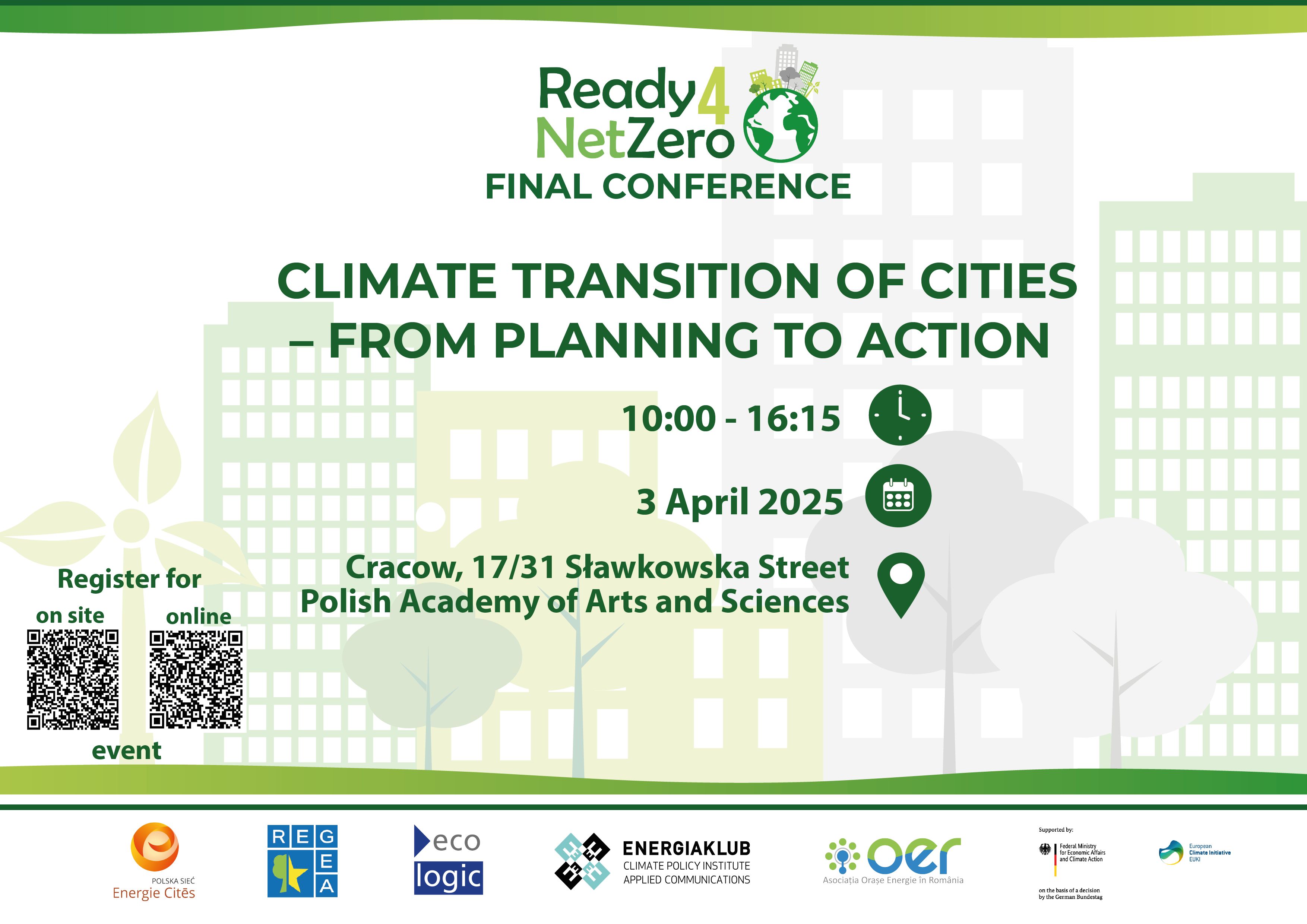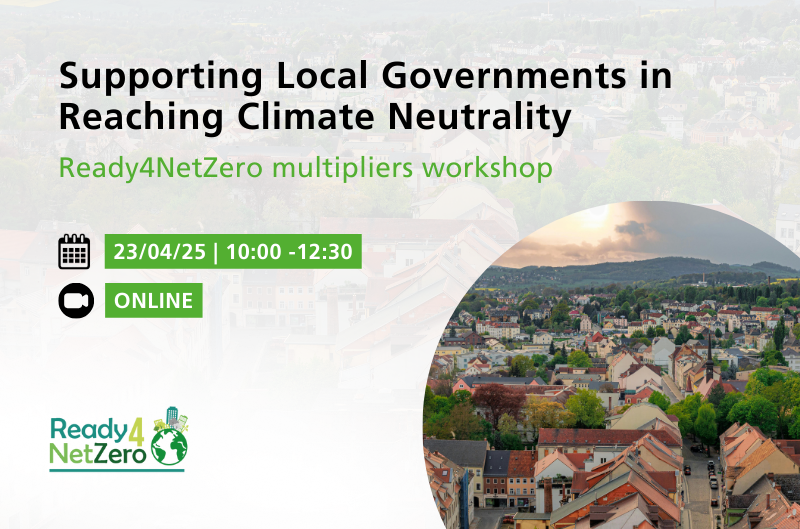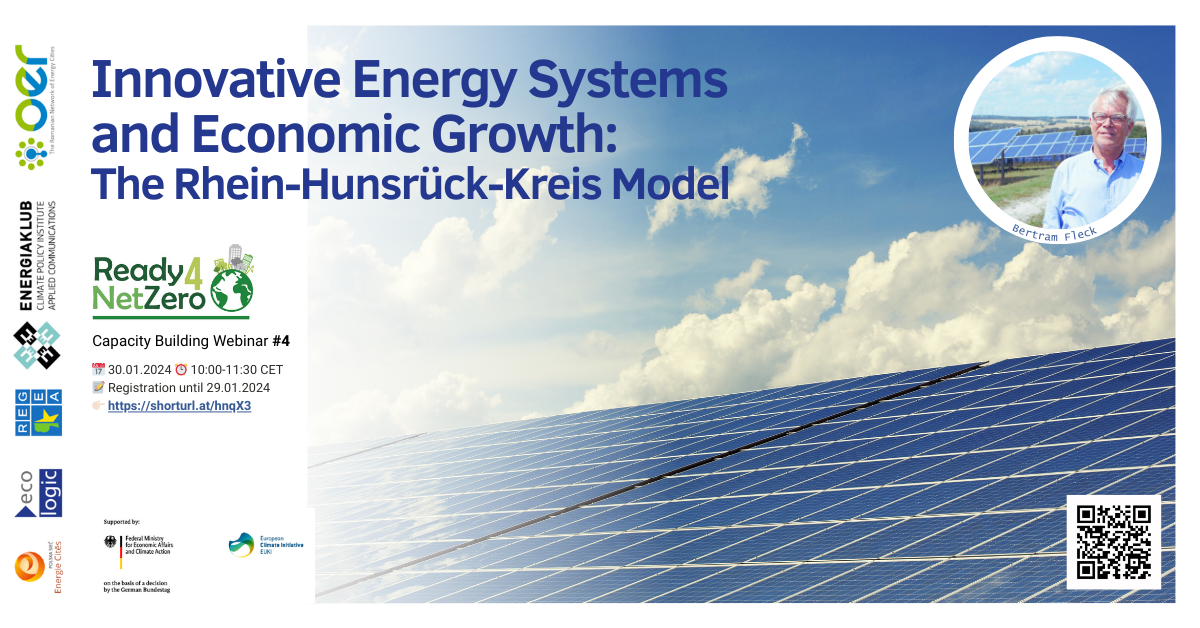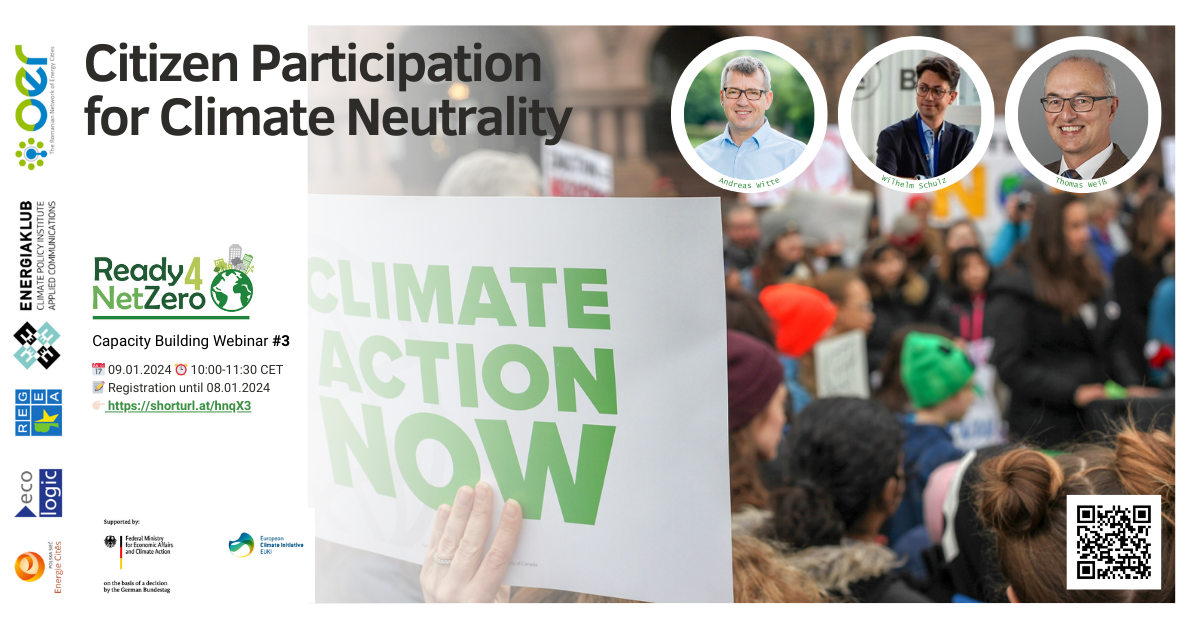Developing Ambitious Local Long-term Climate Neutrality Strategies
Charting the course: crafting forward-thinking local climate neutrality strategies
- Publication
- Citation
Burgos Cuevas, N. et al. 2024: Developing ambitious local long-term climate neutrality strategies. Charting the course: Crafting forward-thinking local climate neutrality strategies. Association of Municipalities Polish Network "Energie Cités" and Ecologic Institute, Berlin-Kraków.
In the face of the European Union's commitment to becoming the first climate-neutral continent, the role of cities is undeniably crucial. Local governments of all sizes are at the forefront of this transformative journey. The path to climate neutrality is complex, iterative, and unique to each city and municipality. It requires continuous learning, adaptation, and collective effort.
The guidance document "Developing ambitious local long-term climate neutrality strategies", developed as part of the Ready4NetZero project serves as a comprehensive roadmap for administrative staff in small- and medium-sized municipalities as they navigate the complexities of becoming climate neutral. It is structured to facilitate a clear understanding of the necessary cross-cutting measures for developing effective local long-term climate strategies, including realizing a long-term vision, establishing baselines, fostering participation, planning action, financing, monitoring, evaluation, and ensuring a just transition.
The document is divided into three main chapters, each addressing a key aspect of climate neutrality strategies. First chapter explores cross-cutting issues essential for successful climate action and the attainment of net-zero goals. It examines the necessary governance frameworks, participatory approaches, financial mechanisms, and critical evaluation processes that ensure effective and equitable strategies. Second chapter assists cities in identifying and implementing a wide array of local mitigation and adaptation actions, along with important considerations for their effectiveness and appropriateness. Finally, the third chapter outlines transformation pathways, charting the course for cities to transition to their goals for climate neutrality by 2050. These pathways provide a flexible framework that cities can adapt to their local context and capacities.
The recommendations draw upon the collective expertise of project partners and insights from a Ready4NetZero needs assessment survey among municipalities in Poland, Hungary, Croatia, and Romania. This ensures that the guidance is theoretically sound and practically relevant, providing context-specific recommendations that resonate with the realities of European municipalities.
The guidance will be published shortly and available in English, German, Hungarian, Polish, Romanian and Croatian.









